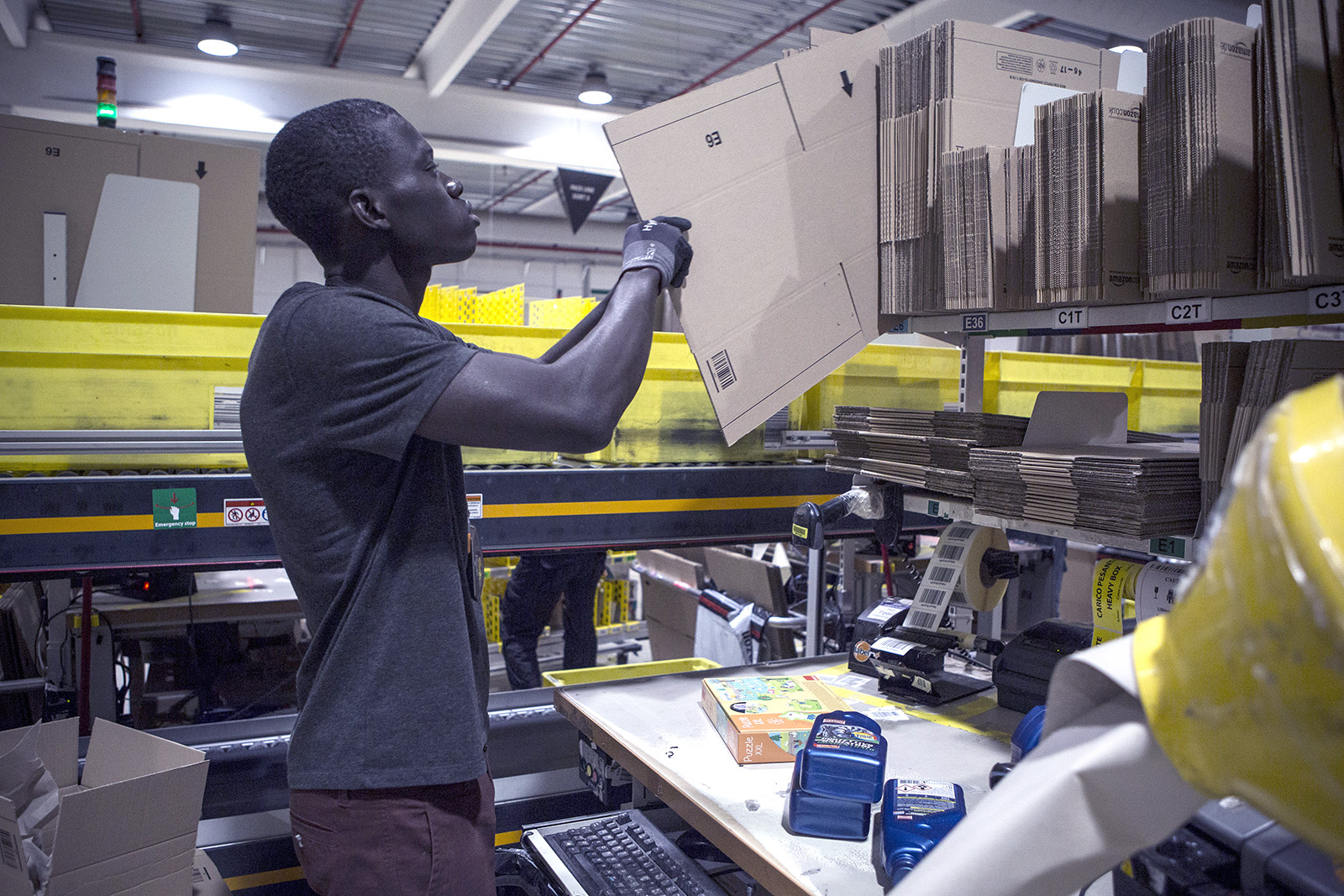The Last Mile Is Determining E-Commerce’s Winners

An employee chooses the right size box before packing a parcel at the Amazon fulfillment center in Castel San Giovanni, Italy.
Photo: Emanuele Cremaschi/Getty Images
Italian parcel delivery is one of the fastest-growing markets in Europe with a compound annual growth rate of 8.5% over the last five years. Behind the steady expansion is an explosion of e-commerce, fostered by the global economy’s ongoing digital transformation and an additional push from the COVID-19 pandemic, which prompted consumers to purchase online to avoid in-store shopping. The next five years should see even faster growth, with projections for 11% year-over-year increases per annum.
At the same time, the exponential expansion in volume has brought its share of disruption and unprecedented challenges to traditional shippers and online sellers. In particular, it has changed their relationship with end customers, who now require a higher level of service because they rely on parcel delivery for more and increasingly immediate needs. Being able to meet those demands has become a competitive edge for players looking to increase their share of the market.
What’s playing out in the Italian parcel delivery market is being seen around the globe as consumers are looking to online shopping to satisfy an ever bigger percentage of their consumption.
E-Commerce Behind Parcel Market Growth
Digitization, globalization, the COVID-19 pandemic and the growth of online customer segments all came together to fuel the dramatic growth in e-commerce and, ultimately, the pressure on the parcel market. During the COVID-19 pandemic, the volume of business-to-consumer (B2C) e-commerce saw a large jump of more than 25%.
Another big COVID e-commerce surprise was the tremendous spike in so-called C2C, standing for consumer-to-consumer or customer-to-customer. It’s the ultimate circular economy in action where consumers sell used goods to each other on internet platforms. This retail segment boomed during the lockdown, as consumers faced economic uncertainty and more time on their hands to think about recycling things they no longer needed or wanted. New enterprises sprung up around the second-hand market, such as Vinted and Wallapop, and gained momentum across Europe. Their popularity is forcing eBay and other more traditional resale online platforms to up their game.
Parcel delivery became a point of differentiation — those companies that could meet customer needs best and those that couldn’t.
But none of this expansion would have been possible without the sophisticated parcel delivery and logistics systems that have been developed in recent years to support ever bigger e-commerce volumes. And with this most recent spike, they have been put to the test.
Pulling the Parcel Delivery Lever
Customers have been demanding higher levels of service the more reliant they become on online shopping. In a short amount of time, it became standard for customers in urban areas to expect and get same-day or next-day delivery, user-friendly package tracking and the ability to change delivery locations in real time. Customers wanted what they wanted, when they wanted it and where they wanted it.
E-commerce had to leverage parcel delivery services to meet customer needs and increase perceived quality. That meant parcel delivery became a point of differentiation — those companies that could meet customer needs best and those that couldn’t. The heightened service made shopping for almost anything easier and more convenient, and customers who are now used to this time-saving approach to errands are unlikely to go back.
Here’s a checklist of what best-in-class European carriers are expected to provide: competitive prices, a tracking system, high-quality customer care support and fast delivery that, if not same-day or next-day, has to be complete within a few days. As a result, carriers must excel in peak management and last-mile operations to cope with increasing volume demand and volatility and optimize capacity, flexibility and delivery speed.
Efficiency and Emissions Reduction
Sustainability and innovation are becoming driving forces for improved courier service process efficiency. As a response to public demand and client and investor concerns, many leading logistics companies and small, new specialized players in Europe are setting ambitious carbon dioxide reduction targets. The ambition for most leading logistics companies is to be fully carbon free by 2040.
That means adopting even more green mobility solutions, space optimization techniques, smart warehouses and last-mile delivery strategies that achieve economies of scale and make a parcel market’s supply chain more efficient. Already, there’s growing electrification of the parcel delivery fleet with more hybrid and electric vehicles and an increased use of biofuels. While the development of e-commerce, shifts in customer preferences and increasing focus on sustainability may be posing unprecedented challenges, they are also creating potentially lucrative opportunities for carriers that keep up with this fast-changing world. The competition will be intense from lean e-commerce newcomers, and traditional logistics service providers — not necessarily known for lean operations and flexibility — will need to better capitalize on the advantages they have through not easily matched networks.
At the moment, the new and traditional players need each other, but it will soon become evident that this is an unstable equilibrium. Parcel delivery incumbents should begin diversifying customer portfolios now to reduce their dependence on a few large e-commerce players.
Success will not be achieved by choosing one path or another. The ultimate winners will be those with the flexibility to address demands for both guaranteed fast and traceable delivery and full-scale decarbonization.








